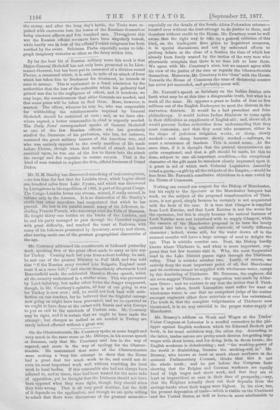Mr. Fawoett's speech at Salisbury on the Indian famine sets
forth what may be at this time a disagreeable truth, but what is a truth all the same. He opposes a grant to India of four or five millions out of the English Exchequer to meet the distress in the starvation districts. it would be a bad precedent and false philanthropy. It would induce Indian Ministers to come again in their difficulties as supplicants of English aid ; and, above all, it would prevent Indian authorities from understanding that they must economise, and that they must take measures, either in the shape of judicious irrigation works, or cheap, slowly worked — and cheap because slowly worked — railways, to avert a recurrence of famines. This is sound sense. At the same time, if it is thought that the present circumstances are quite exceptional, and that a gift should be made, let this be done, subject to one all-important condition,—the exceptional character of the gift must be somehow clearly impressed upon it. A grant in aid of which each Colonial Legislative Assembly voted a quota,—a gift by all the subjects of the Empire,—would be free from Mr. Fawcett's conclusive objections to a sum voted by the House of Commons.






























 Previous page
Previous page